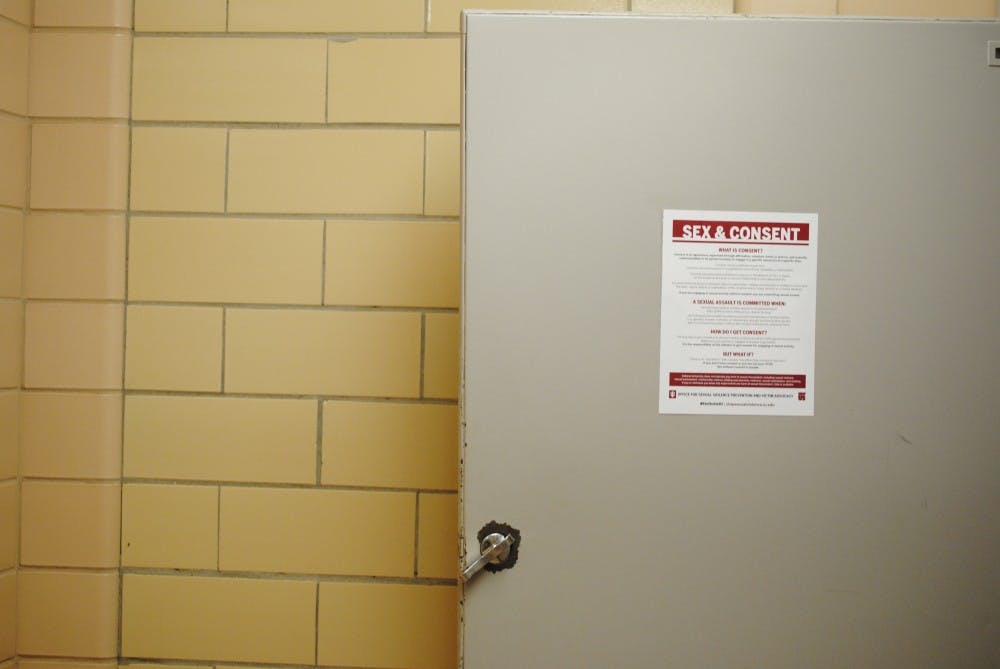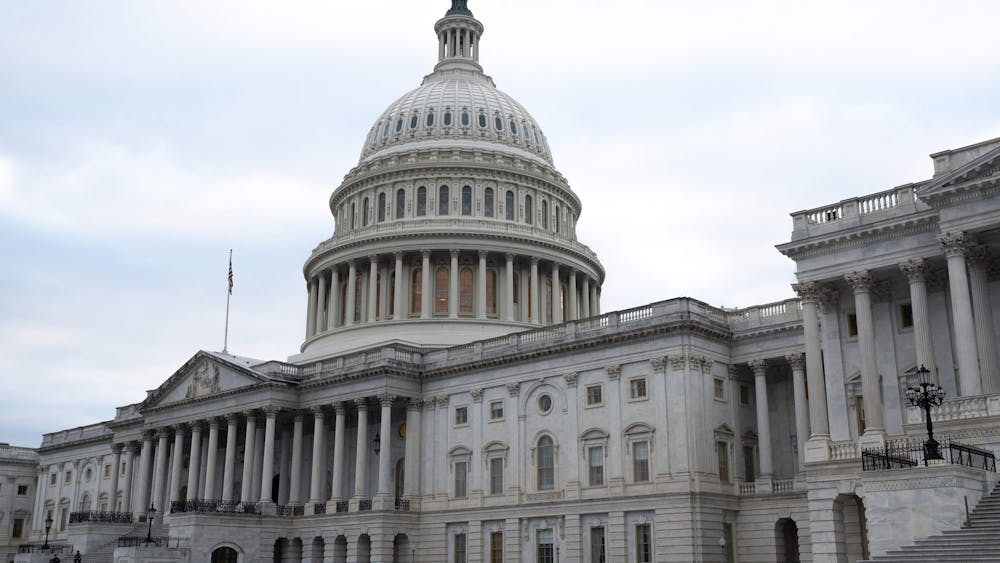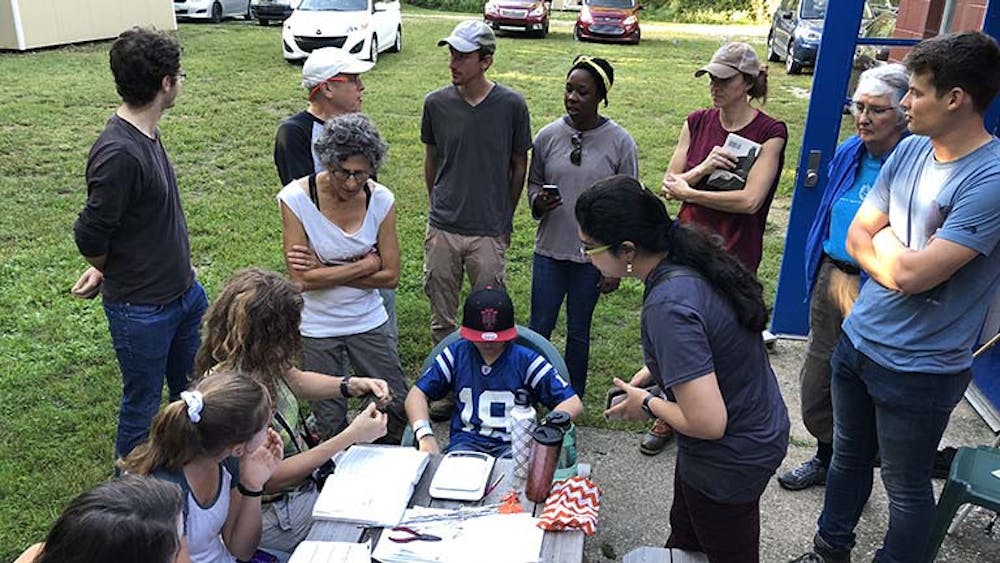False accusations of sexual assault are capable of ruining careers, destroying opportunities and psychologically damaging those accused for the rest of their lives.
That concept is at the core of Aaron Farrer’s lawsuit against IU which he discussed in a press conference Thursday.
Farrer, a former IU student and IU police cadet, was expelled from the University after a 2015 investigation. Another IU student, Marion Zerfoss, accused him of sexual assault and said she had been incapable of giving consent. Monroe County prosecutors dismissed his criminal case, while IU ruled Farrer had committed rape and expelled him from the University.
“It doesn’t seem a far cry to say my life was ruined,” Farrer said during the press conference.
Farrer is currently suing IU for $75,000, his reinstatement as an IU student and the expungement of his records related to sexual assault allegations.
He and the panelists of the press conference argued the current methods for investigating sexual assault allegations are gender-biased to favor women and have a tendency to assume guilt and not innocence.
Chris Perry, the deputy executive director with Stop Abusive and Violent Environments, a nonprofit advocating an end to sexual assault, said while he praises the actions of victim advocates to raise awareness of sexual assault, he also said their “crusade does have its downsides.”

“The ultimate result is the assumption of guilt,” Perry said.
Eric Rosenberg, another panelist and an attorney, said he has represented students accused of sexual assault in 20 lawsuits and more than 100 university level proceedings nationally.
If the question was about believing Caucasian witnesses and not about believing women more than others, Rosenberg said, “we wouldn’t be having this argument.”
If investigators are always encouraged and trained to believe the accuser by default, that puts the fairness of any proceeding in doubt, Rosenberg said.
While most victims of sexual assault are women, Rosenberg said there is no reason to sacrifice due process and treat all women as more believable than men.
“You should not sacrifice due process for the innocent,” Rosenberg said.
Perry also said it was not the responsibility of an investigator to believe or disbelieve, but rather to seek objective results.
Sometimes investigators can attribute inconsistencies in statements about possible abuse to trauma or allow preferential treatment of the accuser to shade their work, Perry said.
In the midst of these debates on university sexual assault investigations, the Department of Education under Betsy DeVos has withdrawn Obama-era guidance on how schools should handle sexual assault.
However, the Department of Education issued an interim Q&A document in September, which provided looser guidance for how schools should handle respond to allegations.
While the new Q&A does not provide for specific time frames for university investigations or standards of proof schools can adopt, Rosenberg argues it can be helpful to university administrators as they seek to improve the process of sexual assault investigations.
Farrer said he thought it was unfair there was one standard for the criminal system and a different one for IU.
Both Perry and Rosenberg emphasized the need for due process in all type of sexual assault investigations, whether in the criminal justice or university system.
Allegations, true or false, have repercussions and it is in the interest of universities and the justice system to pursue their investigations as fairly as possible, Rosenberg said.
IU has received criticism about their methods of investigating sexual assault and the amount of training university investigators and hearing officers are given.
Perry and his organization, SAVE, are working to improve the current system of investigation. Perry said they want to move away from gender-biased language and stereotypes and toward a greater emphasis on rules of evidence.
“We want to make sure we are getting these cases right,” Perry said.
For more on IU’s sexual assault policies see the Indiana Daily Student’s in-depth series “The System.”





